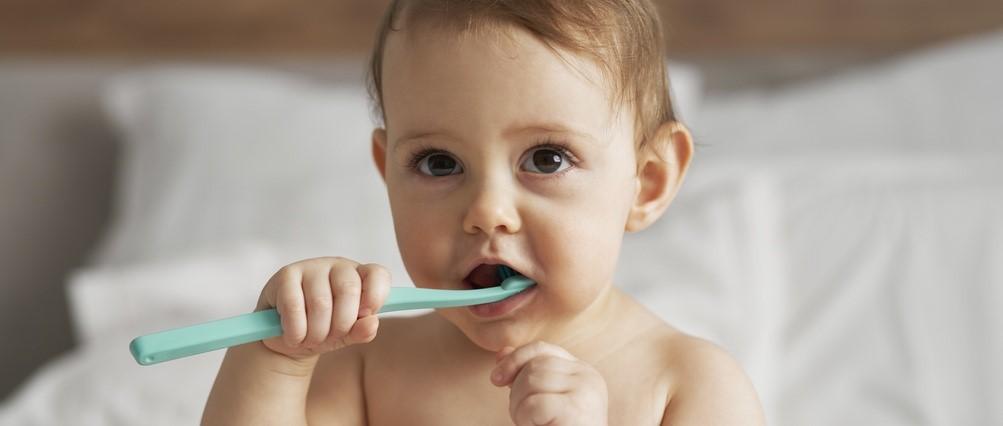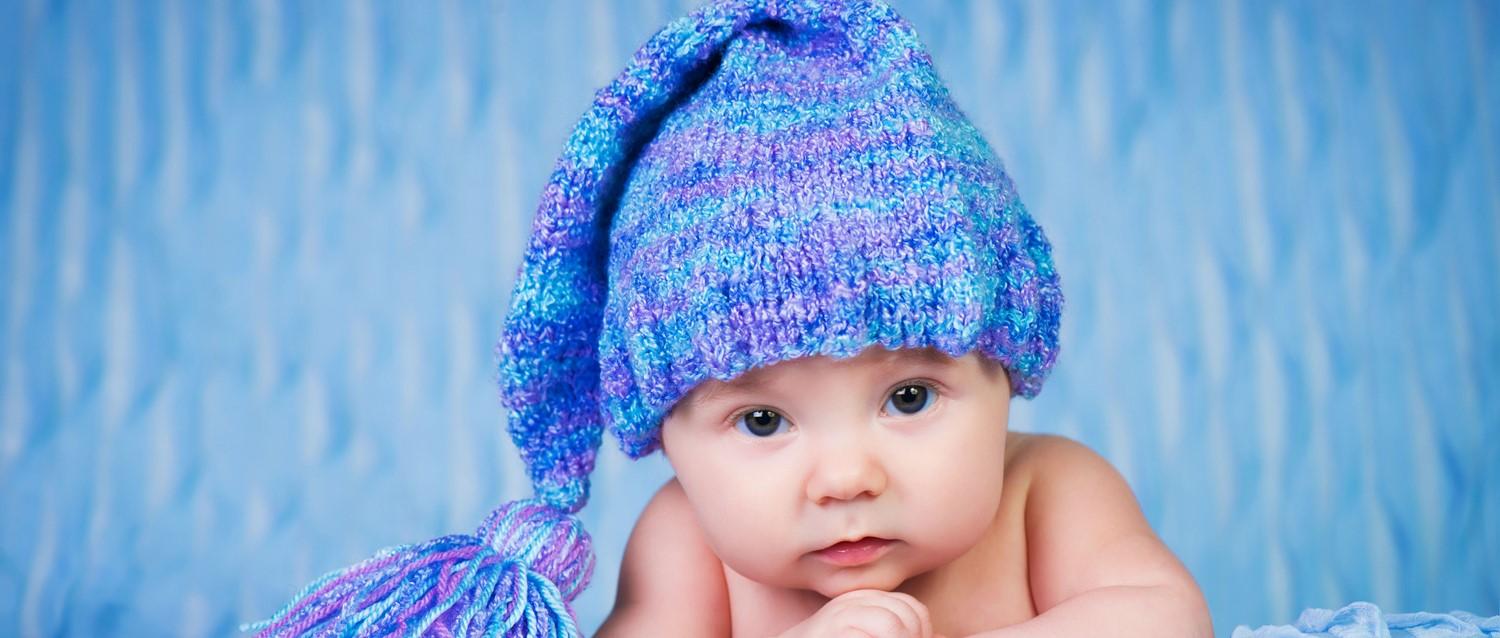
Wie Sie die ersten Zähne Ihres Babys pflegen
Peer reviewed by Dr Krishna Vakharia, MRCGPLast updated by Lydia SmithLast updated 5 Feb 2024
Erfüllt die Anforderungen des Patienten redaktionelle Richtlinien
- HerunterladenHerunterladen
- Teilen Sie
- Sprache
- Diskussion
Die gefürchtete Zahnungszeit ist für viele Eltern schwierig. Wenn die ersten Zähne Ihres Babys durchbrechen, ist das schmerzhaft und unangenehm für sie - und kann sie mürrisch machen und ihren Schlaf stören. Leider ist dies aber ein notwendiger Teil der Entwicklung. Und sobald der erste Zahn erscheint, ist es an der Zeit, sich um die Mundgesundheit des Kindes zu kümmern.
In diesem Artikel:
February is Children's Dental Health Month. In 2023, an annual NHS report1 in England showed that:
56% of children were seen by an NHS dentist in the past 12 months.
This is below the pre-pandemic levels of 59%.
Children aged 0-4 years were seen the least - just 31%.
Lesen Sie unten weiter
Caring for your baby's first teeth
Karen Coates, a registered dental nurse and content specialist for the Oral Health Foundation, says: "Babies' teeth begin to erupt at around six months old and go on until they are around two and a half years old.
"As soon as your child’s first tooth comes through, you should start planning their first trip to the dentist. If it is started early enough it will feel more like a routine rather than something big and scary."
In the UK, you can sign your child up at your own NHS dentist, or search for one nearby. However, many dental clinics have long waiting lists. You can visit a private dentist, but you will have to pay for these check-ups.
People often think that baby teeth are not as important as adult teeth, but this isn't true. Baby teeth - also known as milk teeth - are essential for learning to speak and eat. They are important for the alignment and spacing of your baby's permanent adult teeth.
"There can be repercussions if they are not taken care of," says Coates. "This can be anything from pain for your child or impacting the adult teeth coming through properly, leading to misaligned teeth."
When to start brushing your baby's teeth
You don't need to wait for your baby to have all their teeth before you start brushing them. As soon as they have one - which usually happens when they're around 6 months old - you can start making brushing a part of their routine. Use a toothbrush with a small head and soft bristles, or you could also try a finger toothbrush, which are normally made from silicone and sit on top of your finger.
For babies, it can help to sit them on your knee and support their head against your chest while you brush their teeth. The toothpaste should contain at least 1,000ppm of fluoride as this helps prevent and control decay.
Brush the teeth in small circles with a small smear of toothpaste and gradually build up how thoroughly you do it as they get used to the brush. You should brush their teeth twice a day - once before bed and any other time.
Lesen Sie unten weiter
What to do if your baby hates having their teeth brushed
If your baby hates having their teeth brushed and cries, here are some helpful tips to encourage them to tolerate it:
Don't panic - it's normal if they cry, so don't worry. Just stick with it and gradually work it into their routine.
Brush your teeth at the same time - seeing you do it may encourage them to copy you.
Let them hold the toothbrush - they might enjoy it more if they are in control. However, keep a close eye on them to avoid accidents. It's easy for a baby to push the toothbrush too far into their mouth, or to poke themselves in the eye.
Weitere Lektüre
Patientenwahlen für Baby und Kleinkind

Die Gesundheit der Kinder
Wie Sie Ihr Baby im Winter sicher und warm halten
Wenn Sie schwanger sind, zählen Sie die Tage, bis Ihr Baby in Ihren Armen liegt. Dann ist es plötzlich da, und Sie sind für dieses kostbare Bündel verantwortlich, das in allen Belangen von Ihnen abhängt. Wie sorgen Sie für seine Sicherheit? Woher wissen Sie, wenn es ihm zu warm, zu kalt, zu hungrig oder zu unwohl ist? Das Unerwartete kann immer passieren, aber mit diesen Tipps sind Sie bestens vorbereitet, damit Ihr Baby die Wintermonate gut übersteht.
von Dr. Sarah Jarvis MBE, FRCGP

Die Gesundheit der Kinder
Was sind die Vorteile von Probiotika für Babys?
Wenn Sie in Geschäften oder online nach Probiotika für Babys suchen, finden Sie eine breite Palette von Produkten. Was versprechen diese Nahrungsergänzungsmittel, und sind diese Behauptungen durch Beweise belegt?
von Amberley Davis
Lesen Sie unten weiter
Artikel Geschichte
Die Informationen auf dieser Seite wurden von qualifizierten Klinikern geprüft.
5 Februar 2024 | Neueste Version
23 Aug 2023 | Ursprünglich veröffentlicht
Verfasst von:
Lydia Smith

Fragen, teilen, verbinden.
Stöbern Sie in Diskussionen, stellen Sie Fragen, und tauschen Sie Erfahrungen zu Hunderten von Gesundheitsthemen aus.

Fühlen Sie sich unwohl?
Beurteilen Sie Ihre Symptome online und kostenlos
Melden Sie sich für den Patienten-Newsletter an
Ihre wöchentliche Dosis klarer, vertrauenswürdiger Gesundheitsratschläge – geschrieben, damit Sie sich informiert, sicher und unter Kontrolle fühlen.
Mit Ihrer Anmeldung akzeptieren Sie unsere Datenschutzerklärung. Sie können sich jederzeit abmelden. Wir verkaufen Ihre Daten niemals weiter.